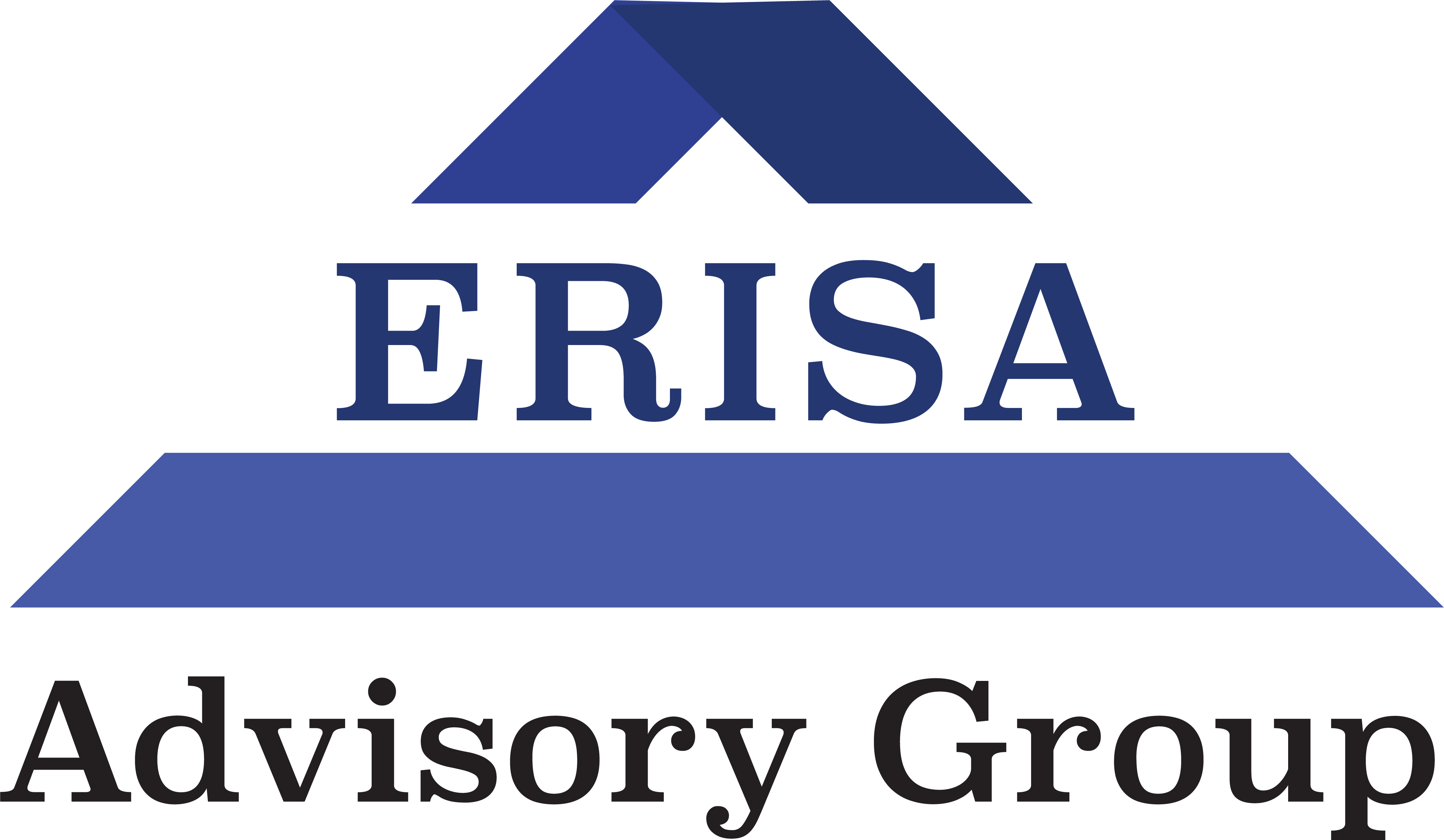ERISA Insider Vol II., Ed. VI: EBSA National Enforcement Projects – How The DOL Investigates and Audits ERISA Plans
The EBSA has 5 main National Enforcement Projects aimed at enforcing ERISA compliance. Could you be targeted by one of these?
Have you ever wondered how the Employee Benefits Security Administration (EBSA) decides to investigate and audit ERISA plans? Just as the IRS can identify red flags that will trigger a tax audit, the EBSA has its own system for auditing Health & Welfare and Qualified Retirement Plans with potential compliance problems. While there is no way of knowing exactly when an audit will occur or what it may find, there are steps your company and/or fiduciaries can take to prevent civil or criminal penalties in situations where an audit finds compliance issues.
The EBSA has established several National Enforcement Projects that guide investigations into ERISA plans. The focus of these projects is on Health & Welfare and Qualified Retirement Plans that have the greatest impact on the plan and its participants.
That especially means large plans, covering numerous employees like Multiple Employer Welfare arrangements (MEWA) and Multiple Employer Plans (MEPs). However each National Enforcement Project category has its own goals and priorities. The primary outcome of the National Enforcement Projects are to find fiduciaries who may be guilty in violation of the fiduciary standards, which may include: making prohibited transactions, self-dealing, or otherwise mishandling plan assets.
Over the last year, EBSA chose to strategically allocate resources to investigate professional fiduciaries and service providers managing large plan assets and large benefit plans. Just in FY 2020 alone, EBSA restored $3.1 billion dollars to employee benefit plans, participants and beneficiaries. The bulk being $2.6 billion dollars from enforcement actions of 1,122 civil investigations.
There are currently 5 categories of National Enforcement Projects that fiduciaries should be aware of.
#1 Employee Stock Ownership Plans (ESOPs)
Since 2005, the ESOP National Enforcement Project has been responsible for identifying and correcting violations of ERISA in connection to ESOPs.
The Roles of the ESOP National Enforcement Project:
- Ensure fiduciaries buy and sell stock at fair market value
Plan fiduciaries are prohibited from paying more than, or selling less than the fair market value of the stock.
- Investigate potential conflicts of interest in ESOP Transactions
The ESOP NEP monitors ESOP transactions for conflicts of interest, and especially when the individual transacting with the plan holds some fiduciary role over the plan itself. This pertains to prohibited transactions including, but not limited to, self-dealing.
- Monitor and control wasteful Corporate Spending
EBSA reviews the operation of ESOPs and fiduciaries in order to control wasteful corporate spending as well as corporate malfeasance.
They also ensure that plan participants receive the benefits that they are entitled to as part of the plan. It’s critical that trustees have proper procedures in place when operating the plan to ensure that plan participants receive their benefits and fiduciaries don’t violate prohibited transactions rules.
Hiring an independent fiduciary to ensure your ESOP is ERISA compliant is highly recommended, especially when dealing in complex transactions such as mergers and acquisitions.
#2 Health Enforcement Initiatives
EBSA concentrates its efforts on returning money to plans, participants, and beneficiaries affected by improper administrative practices and mishandling of funds.
There are 3 National Initiatives for Health Enforcement:
Mental Health Parity
EBSA puts special emphasis on compliance with the Mental Health Parity and Addiction Equity Act (MHPAEA). The goal of this act is to ensure that health plans comply with mental health and substance use disorder rules.
EBSA also focuses on evaluating treatment limitations relating to treating opioid and other substance use disorders. Specifically, EBSA looks into improper limitations imposed on benefits through noncompliant cost sharing, benefit limitations, or administrative practices.
Emergency Services
EBSA focuses on emergency room services in connection with the Affordable Care Act (ACA) emergency services provisions. EBSA ensures that plans and administrators that deny claims based on diagnosis without accounting for symptoms, or limiting coverage of emergency services are properly reimbursed according to ACA rules.
Service Provider Self Dealing
Third-party service providers like insurance companies and benefit managers provide services for a fee. EBSA looks into whether these fees are disclosed in the plan service contracts or the monthly billing statements. Since the fees aren’t known to the plan fiduciary, the service provider has discretion over the plan assets.
This can create a situation where the service provider sets its own compensation and handles the plans assets for personal gain, which consequently is a fiduciary breach. In these circumstances EBSA will seek disgorgement of the illegal gains and correct the practices.
Shut Down Abusive Multiple Employer Welfare Arrangements (MEWAs)
Another important effort of EBSA’s health enforcement initiatives is to identify and shut down abusive MEWA’s. It’s not just limited to the MEWA, but also those who operate them. This is to prevent fraudulent operators from terminating a MEWA to open another in a different state.
These investigations can be civil or criminal in nature. With civil investigations, EBSA ensures the MEWA is not in a hazardous financial position that will adversely affect the plan and participants.
EBSA has conducted criminal investigations of MEWAs and uncovered a range of crimes including wire fraud, mail fraud, bankruptcy fraud, theft, organized crime and more. Criminal Cases are often prosecuted by US Attorney’s offices.
#3 Protecting Benefits Distribution (PBD)
The focus of the PBD enforcement project is to ensure that plan participants are paid retirement benefits that remain stagnant and may be at risk due to a plan sponsor’s activities or failure to act.
There are 3 Initiatives for Protecting Benefits Distribution:
Terminated Vested Participant Project (TVPP)
The purpose of this enforcement project is to ensure that benefit plans maintain up-to-date census records so that terminated participants can be contacted when they have vested account balances.
If participants are not aware of their rights and responsibilities of their benefit distributions, they risk losing or forfeiting their distributions due to death or significant tax penalties.
Distressed Plan Sponsors
When a plan sponsor is in a financial distress situation such as bankruptcy, the sponsor seeks to protect participant benefits.
In these situations employers may hold assets that belong to the plans, and sometimes those assets are commingled with the employers assets.
EBSA investigation efforts mitigate risk of losses due to diversion, unreasonable expenses, and ill-timed pursuit of court processes for the purpose of claiming delinquencies owed to the plan.
EBSA will also identify responsible fiduciaries and their assets.
Custodial Abandoned Plans
The goal of Custodial Abandoned Plans is to ensure that abandoned plans are properly carried out or swiftly wound up. EBSA also investigates to ensure that service providers are not charging unreasonable fees to the plan participants’ accounts.
EBSA puts emphasis on identifying institutions with large numbers of abandoned plans and then seeks to correct them. This can include changes to the service provider’s internal procedures and/or returning unreasonable fees that were taken from the abandoned plans.
#4 Plan Investment Conflicts (PIC)
The PIC enforcement project concentrates on issues related to fiduciary service provider compensation. This also includes conflicts of interest relating to plan assets. The goal of this project is to disclose service provider compensation with accurate record keeping and ensuring fees are reasonable.
When fiduciaries have conflicts of interest, they can spend money imprudently, affecting decision making processes. EBSA examines plan fiduciaries to ensure that they are doing their due diligence and prevent spending on undisclosed arrangements, including those outside of market standards. EBSA has conducted criminal investigations into fraud, kickbacks, and embezzlement.
#5 Contributory Plans Criminal Project (CPCP)
CPCP is EBSA’s first National Criminal Project. This project was designed solely to investigate criminal abuse and violations relating to contributory plans like employer sponsored retirement plans and health & benefit plans.
There are numerous ways that contributory plans can be exploited by service providers, third parties, and even internal employees. Ultimately these adversely affect the plan participants. The consequence of these abuses can lead to identity theft, unpaid health benefits, and unpaid insurance premiums.
The CPCP has successfully investigated and prosecuted many criminal abuses of contributory plans. EBSA takes aggressive action against violations so as to deter future criminal activity.
Protect your company and your plan from an audit
Voluntary Fiduciary Correction Program
Staying compliant is critical. Even experienced fiduciaries can make mistakes leading to enforcement action. EBSA is mindful of this and has created the Voluntary Fiduciary Correction Program (VFCP) as a result.
This program allows fiduciaries who identify mistakes that violate part 4 of Title I of ERISA to take corrective action before an audit or enforcement action. The EBSA understands that the process can be complex, causing a fiduciary to make an honest mistake. Which is why this program was developed so that fiduciaries aren’t suddenly surprised with a civil or criminal investigation.
Protect Yourself From EBSA National Enforcement Projects By Hiring an Independent Fiduciary
Another option to avoid mistakes that lead to criminal and civil consequences is to hire an independent fiduciary. An ERISA independent fiduciary can act as a nonpartisan voice to ensure transactions are compliant with ERISA as well as make frugal decisions that favor the plan participants and beneficiaries, rather than the interests of other parties like employers or third-party service providers.
Schedule Your Free Consultation With An Independent Fiduciary At The ERISA Advisory Group
At the ERISA Advisory Group we have over 25 years of ERISA compliance experience. Our founder and president, William Kropkof, was a former investigator at the Department of Labor for 7 years tasked with investigating Health & Welfare and Retirement Plans.
We know how to find ERISA compliance issues and we know how to prevent and correct them.
If you are looking to hire an independent fiduciary that can take on your fiduciary responsibilities, then schedule a free consultation today to see how we can help you find and correct compliance issues before an EBSA National Enforcement Project does.
Speak To An Independent Fiduciary At The ERISA Advisory Group

